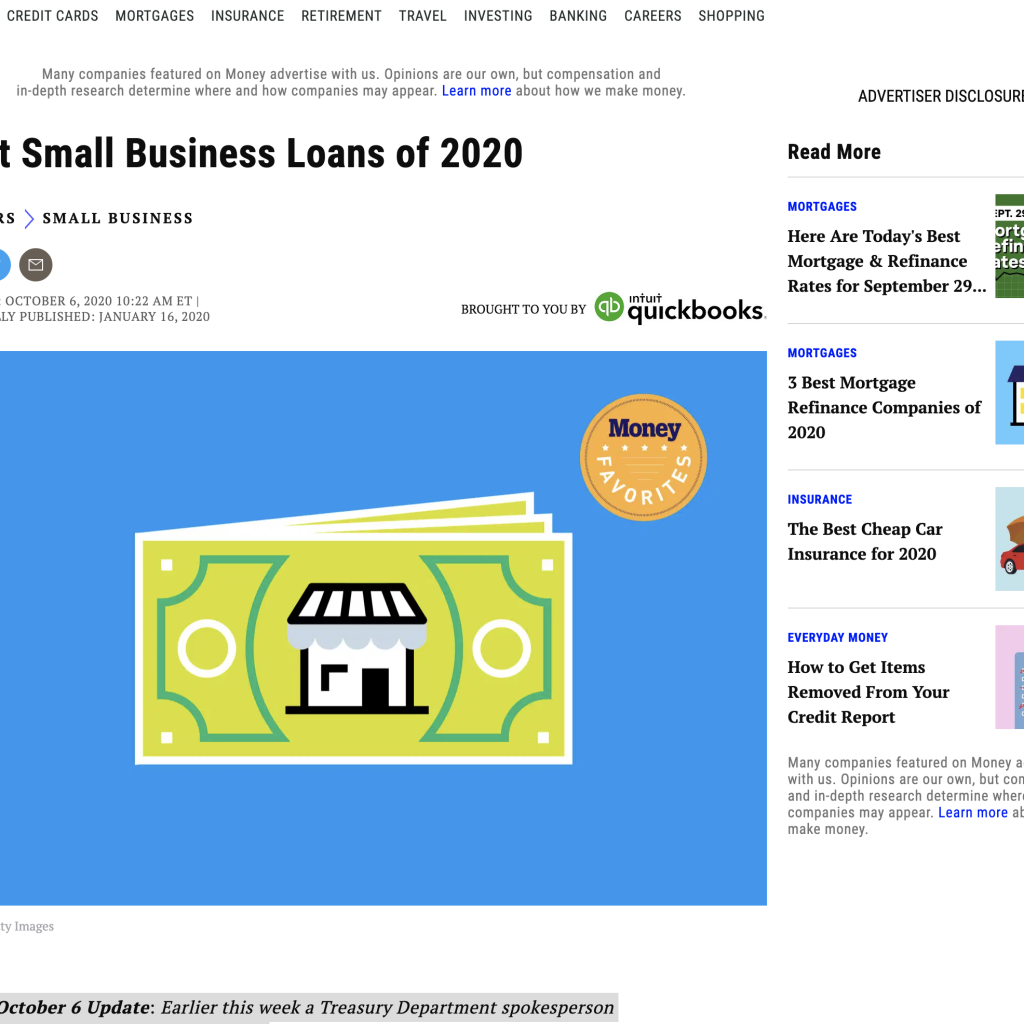Money Magazine’s “Best Small Business Loans of 2020”
Raúl Menéndez from Money magazine reached out to the Southern Oregon Business Journal to let us know a couple of things.
Money Magazine appreciates us and what we do.
“Raúl with Money here.
As we both know, many business owners are still facing economic hardships due to the pandemic. It’s very encouraging to see how your team at Southern Oregon Business Journal is providing relevant information during this hard time— especially your “The Small Business Owner’s Guide to the CARES Act” page. Thanks for sharing!”

Money Magazine published a timely and relevant article related to our page.
“Since you already offer valuable information on the subject, I thought you might be interested in our article regarding small business loans. You can find it here: (https://money.com/best-small-business-loans)
Our team of researchers took it upon themselves to study the best online small business lenders. Each lender we studied is transparent in their terms, they provide an easy application process and they offer fast fund disbursement for businesses who need money at the moment. “
I asked Raul to send me a blurb to include with the link and here is what he said.
“If you just started researching SBA loans the first step is to determine the kind of loan that best fits your needs. The kind of loan you opt for will then determine its particular application requirements. These also vary from one lender to the other, so it’s always advisable to do some comparison shopping before making a decision. The different types of small business loans include, but are not limited to, equipment loans, term loans, invoice financing, lines of credit, and merchant cash advances. When applying for a small business loan, you will need to provide a significant amount of documentation and complete an application either online or at your local bank branch. To ensure the application process goes smoothly, have the following information and documents on hand: your resume and personal identification information, a business plan, income tax returns, your loan application history, bank statements, proof of collateral, the use of the loan, debt schedule, and legal documents.
The PPP loans were part of the CARES Act and provided businesses with loans designed to fund payrolls during the height of pandemic-related lockdowns. The Small Business Administration’s Paycheck Protection Program originally meant to expire on June 30, 2020, however, it was extended until August 8th. At the moment there are still about $130 billion unused funds for the program. This was due to some ambiguous forgiveness terms and duplicate applications of some small businesses, as well as some SBA portal glitches. Banks could hold the remaining funds while Congress reaches a final decision on the third round of PPP loans. Even though the application process is over and it’s still uncertain if it will reopen later this year, experts suggest reaching out to your online lenders and banks to see what they are offering and what they are able to do for your small business.”


Advertisement